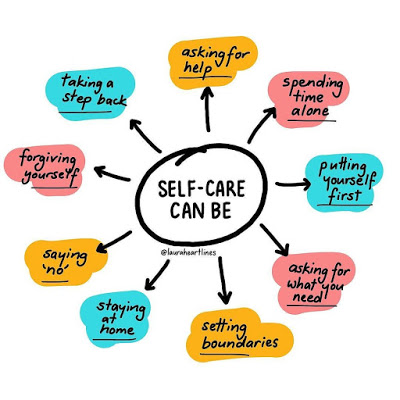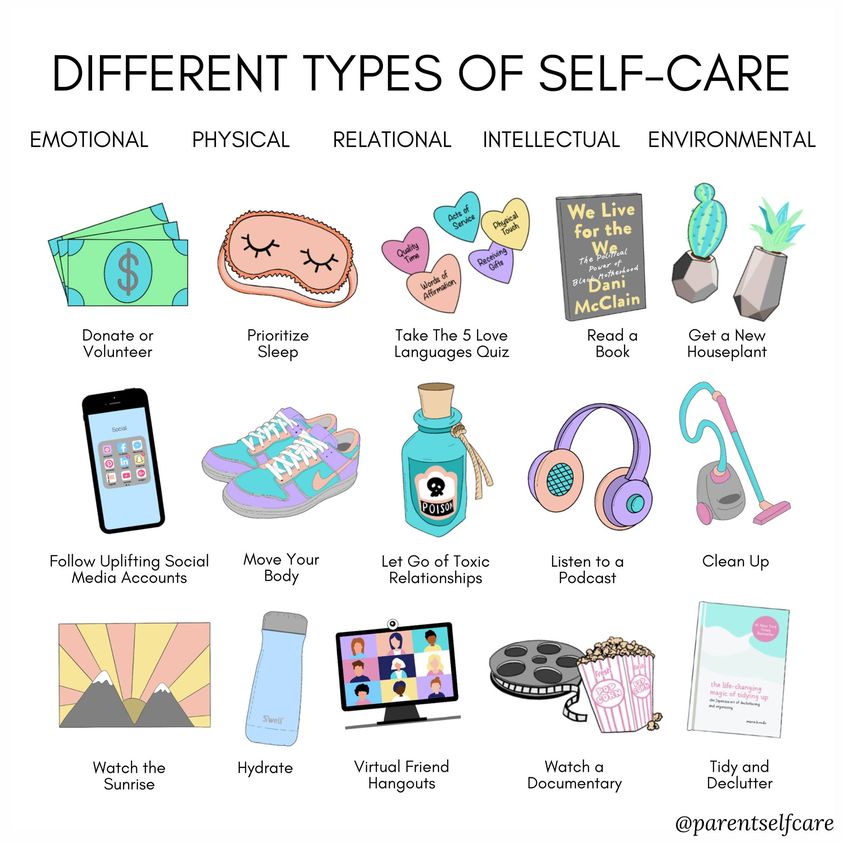According to available studies, there is currently no single definition of self-care that is broadly accepted in literature. Definitions vary as to
(i) who engages in self-care behavior;
(ii) what motivates self-care behaviors; and
(iii) the extent to which healthcare professionals are involved.
Some researchers have adopted a clinical approach. A 2010 study published in the JBI Library of Systematic Reviews defined self-care as “the set of activities in which one engages throughout life on a daily basis,” focusing on promoting health, preventing illness, and managing issues that come up.
A study published in BMC Palliative Care in April 2018 took self-care to mean “the self-initiated behavior that people choose to incorporate to promote good health and general well-being.” The study authors added that it’s about being healthy but also about incorporating coping strategies to deal with work stressors.
Much of the current research surrounding self-care has focused on groups in similarly challenging careers. Dr. Gill Lopez has studied this side of self-care and says people who are self-sacrificial by nature may need to be cajoled to practice self-care, but she adds that it’s important for everyone else, too, and helps people live and work at their optimal performance.
As self-care has become more mainstream, the definitions have started to become more applicable to the general public and tend to focus on tuning in to one’s needs and meeting those needs. Perspectives of self-care differ between healthcare professionals and the general public, and between healthcare professionals in different disciplines and different roles. As different professions view self-care within their own domain of practice, we are left with a multitude of explanations and descriptions.
The 5 Components of Self Care
The 5 Components of Self Care are essential elements that ensure optimum health and wellbeing. They include;
- Emotional Attunement
We are emotionally attuned to ourselves when we notice how we feel and what we need at any given moment. We are in touch with ourselves and take action to maintain or improve our wellbeing. Being emotionally attuned allows us to deepen our trust in ourselves and to feel emotionally safe in our lives.
When we ignore ourselves, deny our wants and needs, or don’t act on our intuition, we are not emotionally attuned to ourselves and make choices that are not aligned with what we need in that particular moment in time.
- Making Wise Choices
When we are emotionally attuned, we are able to make good choices for ourselves. Caring for ourselves means that we consider our insecurities, desires, vulnerabilities, preferences, individual differences, hopes, and fears when making a decision.
Sometimes we choose something someone else wants for us or expects from us. This is usually not in our best interest and an inauthentic choice that does not serve us well – at least not in the long run.
- Taking Personal Responsibility for Ourselves
This is SUCH an important aspect of self-care that so many people try to avoid and resist. Taking personal responsibility for ourselves is the most empowering way of living. Instead of blaming others, our past, our fears, or our situations for what is going on in our lives, we take full responsibility so we can create a life that suits us and that we find meaningful.
- Emotional Regulation and Self-Soothing
Many people struggle to adequately regulate their emotions and soothe themselves in times of stress. When we take our thoughts too seriously, we easily get caught up in emotional turmoil. This is the time when we need to tend to ourselves with understanding, consideration, and compassion.
When we let our emotions escalate, try to control others to avoid our own emotional response, or talk to ourselves in harsh and punitive ways, we do not practice good self-care.
- Letting Go of What Doesn’t Serve Our Wellbeing and Growth
This is an important skill all healthy adults need to develop and enforce in their lives to practice good self-care. This is not about encouraging avoidance but about discernment and wisdom.
Develop Your Self-Care Plan
Self-care isn’t a one-size-fits-all strategy. Your self-care plan will need to be customized to your needs. A self-care plan for a busy college student who feels mentally stimulated all the time and has a bustling social life might need to emphasize physical self-care.
On the other hand, a retired person may need to incorporate more social self-care into their schedule to make sure that their social needs are being met. When you discover that you’re neglecting a certain aspect of your life, create a plan for change.
You don’t have to tackle everything all at once. Identify one small step you can take to begin caring for yourself better. Then, schedule time to focus on your needs. Even when you feel like you don’t have time to squeeze in one more thing, make self-care a priority. When you’re caring for all aspects of yourself, you’ll find that you are able to operate more effectively and efficiently.







